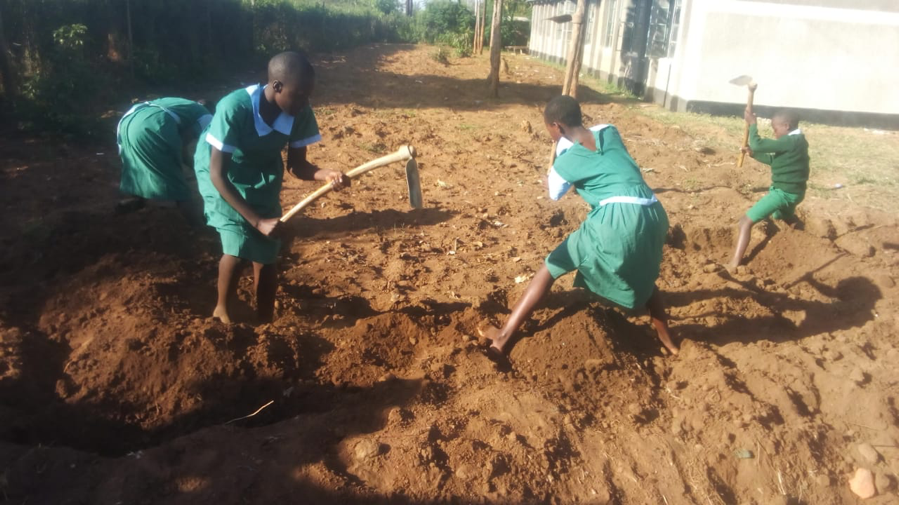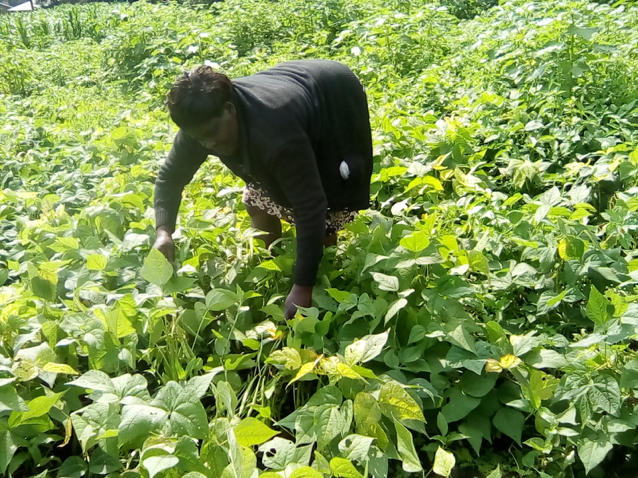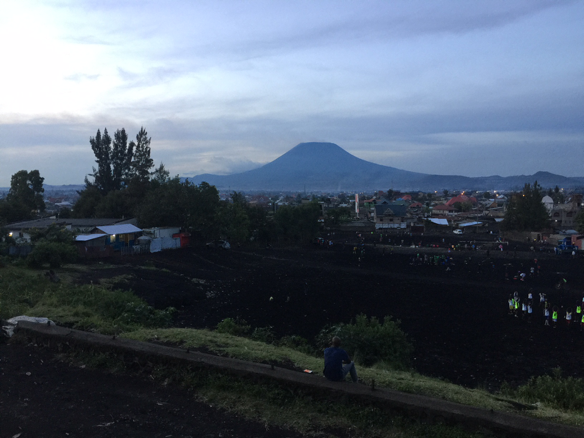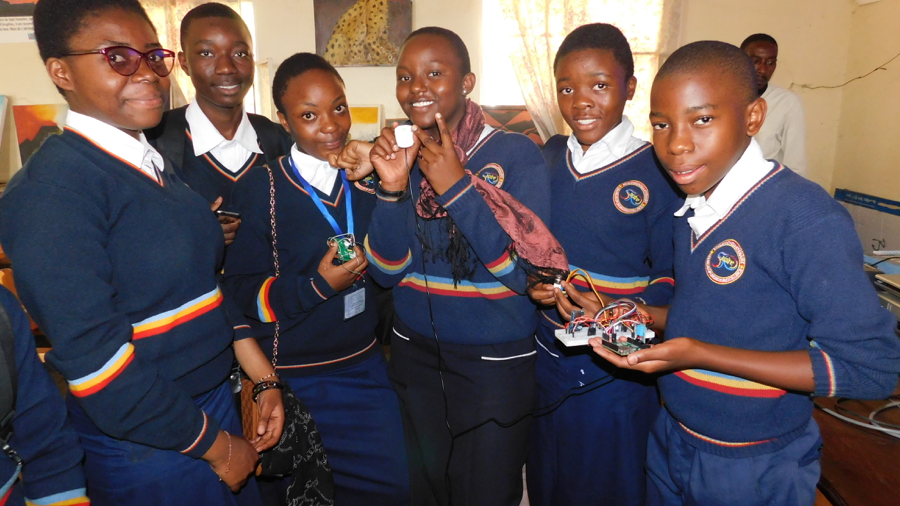By George Newman – Founder and President of One Planet Education Network (OPEN)
Photo via author
Introduction: Meeting the Needs Where it Matters Most:
Now that nature has entered the conversation (with storms, rising seas, wildfires, etc.), it’s obvious the times call for action to redress harms done to the natural world and to nature’s systems for sustaining life, our lives included. Furthermore, it’s obvious that environmental problems have not been equally distributed around the globe – because there are areas of the globe more effected by climate change and human mismanagement than other areas. And finally, it’s obvious that the solutions to these environmental problems call for not simply local action and action on a national level, but also for action on an international level – action that cuts across traditional lines defining and separating groups from one another.
However, while the needs are obvious, they aren’t being met. Therefore, we need to mobilize resources, and a major resource is our youth, especially youth living in the most vulnerable regions of the world where the need to act is greatest because the economic resources are scarce, and the infrastructure is poor.
In these regions of the world where the needs are greatest, the talent and entrepreneurial economic potential of the youth can be the greatest resource. The initial focus should be, then, on enlisting youth and adjusting the education system to help improve their own community’s local infrastructure. To that end, we can deploy broadband Internet; deliver the best education and training, and allow local educators and officials to manage locally.
Much of this student-driven community infrastructure improvement involves solutions to local and regional environmental problems, to strategically restore ecosystems – especially by regenerating soils of small holder farms and improving the management of indigenous forests. In addition, there is pollution mitigation and economically sound recycling programs along with bolstering community emergency services. From the outset, the effort needs to be to combine the knowledge of the elders and wisdom of the land of First Peoples for sustainable living with the best of game-changing modern technologies for monitoring and fine tuning the local natural and human systems (small holder farms). With some variation on this formula, we can then begin to work together as one species across today’s irrelevant borders, to find our way out of the long era of self-destructive planetary mismanagement.
This is the mission of One Planet Education Network (OPEN) – to mobilize the precious resource of youth all around the world on this common mission and to concentrate on regions of the world where the need is greatest for taking on problems related to climate change and the destruction of nature’s marvelous systems for controlling temperature and sustaining life.
Today, OPEN is centering its curricula, programs, and live international events on sustainable farming and forestry, on community emergency services, and on what we call ‘community infrastructure education’. The goal is to level the playing field in the world-wide fight to solve problems around environmental degradation and to provide youth in under-resourced communities the best in education and technology for becoming smart citizens working to achieve health and prosperity in their communities, with the assistance of their distant peers and subject matter experts.
In sum, our education and technology programs focus on supporting the local communities in which our schools reside, schools now across 13 countries, 10 of which are in Africa. We give students in less well-served communities the best programs and technologies that leading education countries offer their youth. Putting the schools and young students at the center of the community hub, OPEN pushes its students to facilitate and promote sustainable community development.
OPEN Students not only try to advance their own local communities, but given our technology, OPEN students also have opportunities and tools to simultaneously help remote, maybe less well-off, even better-off communities. In taking advantage of these opportunities, by bringing broadband Internet to all isolated communities, every community has a voice and can offer others its talents and solutions to common problems – all, making for a bi-directional, peer-driven education.
Involving Youth in Regenerative Farming
One example of OPEN’s work with youth to address problems related to climate change and environmental destruction is the work getting youth involved in regenerative farming – farming that aims at enriching soils, mitigating erosion, conserving and better ensuring supplies of fresh water locally, and increasing sustainable supplies of healthy food for communities.
We are conducting a student-led, community-centered citizen science experiment on restoring depleted soils worldwide, working with small holder, mainly women, farmers to increase food security and advance local farm economies. We are bringing in new smart farm sensor technologies and data analytics studies and combining them with indigenous peoples’ ancient knowledge of wholly organic solutions beginning with Aboriginal Peoples of Australia and Native Hawaiian culture — the best of the new combined with the wisdom and knowledge of the old.
We pair one school to one farm — in Kenya farm regions, Liberia, the DR Congo, Uganda, Aboriginal communities in Australia, and the mountains of denuded Haiti , and soon in six other African countries who have recently joined OPEN. We are working with and bringing together Ministries of Agriculture, Environment, Education, Gender, and Telecom in ways that inspire them to further support their youth and, in turn, their own future.
With a host of technology partners and universities, we have just begun to bring high-speed low cost wireless broadband Internet to remote communities. We are learning from each other, and the program is showing early success after only two growing seasons — with large gains in food crop yield, soil repair, and erosion prevention. OPEN then offers remote communities of inspired students many opportunities through the school year to proudly showcase their early successes and their unique cultural knowledge to their peers worldwide and to their local communities.


Involving Youth in Emergency Services


In OPEN’s Emergency Services program, our students in the DR Congo (DRC) are working with the Goma Volcano Observatory scientists and technologists. OPEN has provided the students a STEM Lab program, and as a result, our smart and hyperactive volcano motivated young middle school students at the Cinquantenaire School are building Internet-connected sensors to monitor for dangerous CO2 gas releases — advancing old out-of-date and relatively ineffective non-realtime systems.
Soon, students from Knox Grammar, a private boys partner school in Sydney, Australia, will be helping students from the Cinquantenaire School by building and shipping CO2 gas sensors for the Goma city students to use to help the Goma Volcano Observatory and city of Goma do the best job possible of keeping Goma’s citizens safe. This is a prime example of remote communities materially supporting one another, protecting others’ health and welfare, and together learning technical and data analytics skills in preparation for the science and technology-driven job market.
Community Infrastructure Education: “Why Sci?”
Upcoming OPEN community infrastructure programs will include – renewable microgrid energy systems (clean biomass crop waste systems initially), water and waste systems, economically sound and improved recycling programs, more cybersecure broadband Internet deployments and technology programs, cleaner, more efficient transportation systems, passive solar buildings and design studies, and urban farming. In doing so our students will also be utilizing the best digital geomapping software systems for environmentally sound community planning.
Last but not least, as an ongoing service, OPEN is offering an interview series focusing on civilization-altering topics that will impact everyone in the near and far future. Regularly led by young co-hosts Ashley Ruz and Owen Kent, we interview top scientists/experts to directly address youth on such topics as gene editing/synthetic biology/biotech; AI/Machine and Deep Learning, Quantum Computing, Next Gen Internet, Neuroscience, Nanotechnology and Space Commercialization/Colonization. We call this program ‘WhySci?’ – why and how did you become a scientist and what can that mean to me and my life?!. The examples and details of WhySci can be found by clicking on the following link: https://www.oneplaneteducation.com/products-details
Concluding Remarks
For the past several decades, OPEN has been organizing, managing, and developing curricula and project websites to support and train teachers and school technologists. In addition, OPEN has been managing “live” videoconference events dating back long ago when OPEN connected inner city NYC 9th grade students to peers at exceptional schools in Denmark, Greece, Jordan, Ireland (North & South), England, and Serbia.
But whatever the specific program or activity, we always circle back to the basic student question, namely, “What’s in it for me as a person — as an individual who has to be prepared to someday enter the workforce driven now by AI and machine learning, and also contribute in some way to my family, local community, and society?”. To address this question, we fully promote project-based, problem-based, inquiry-based learning models of education, but we also tie our multi-year program series to the greater world and especially to remote communities around the world. In doing so, we hope to contribute to a world-wide movement that says education should be not simply or mainly for an individual, nor even for a single group of individuals. Rather, education should be one-planet education for all — so as to create a world-wide community of those who better care for one another and for our life-sustaining planet.

